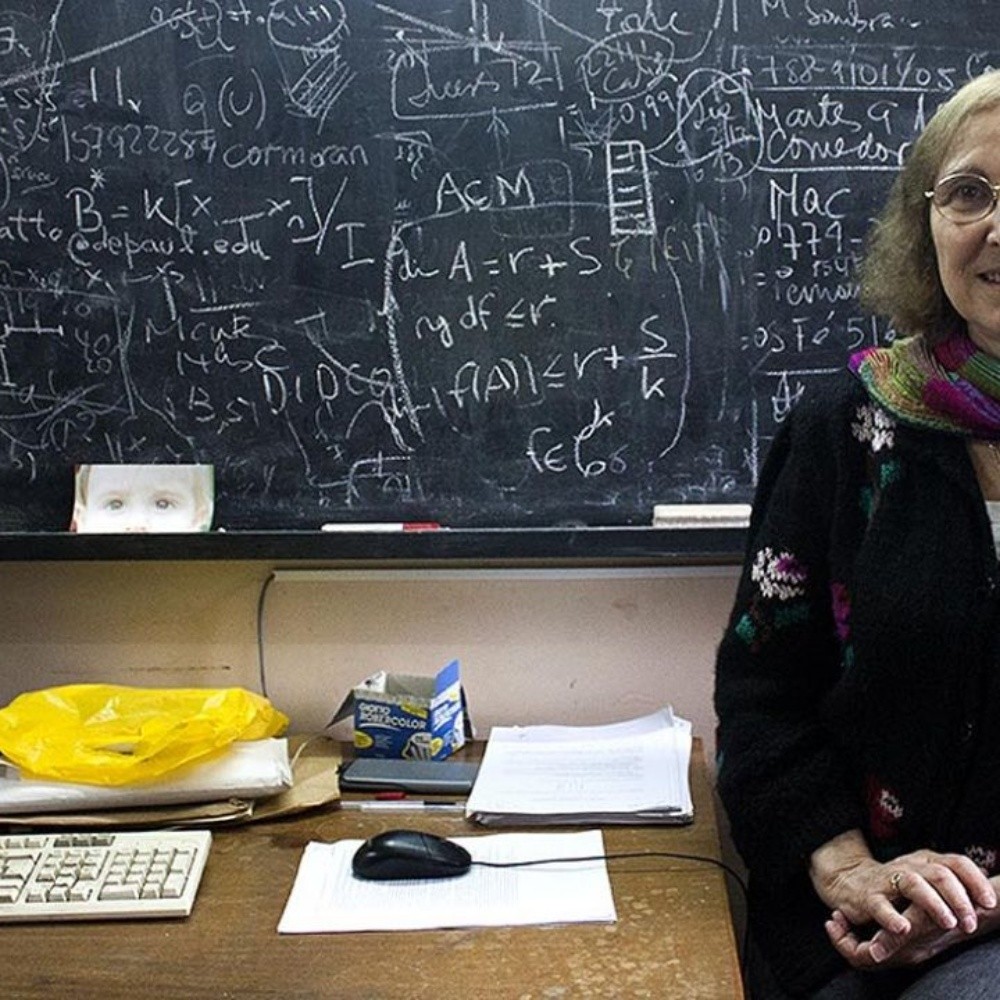
Argentine mathematics Alice Dickenstein won the 23rd L’Oréal-Unesco International Award “For Women in Science”along with four other triads, announced the organizers of this prestigious award that recognizes excellent scientists from around the world every year.
In this edition, in which research in material sciences, mathematics and computer science was awarded, along with the Argentine scientist, the Kenyan chemist Jane Catherine Ngila, the Japanese chemist Kyoko Nozaki, the Israeli-American computer scientist Shafrira Goldwasser and the astrophysicist Francoise Combes French.
“I feel extremely honored. The other two mathematicians who received the award in previous years are extremely important: one is Ingrid Daubechies, the only woman who was president of the International Mathematical Union, and the other was the French Claire Voisin; both are brilliant,” he said. dickenstein, Professor at the Faculty of Exact and Natural Sciences of the UBA and researcher at Conicet.
According to the organizers of the award, the Argentine scientist was rewarded for “her exceptional work at the forefront of mathematical innovation, applying algebraic geometry to the field of molecular biology.”
“His research makes it possible to understand the precise structures and behaviors of molecules and cells, even on a microscopic scale. With his work on the border between pure and applied mathematics, he built important links with physics and chemistry and enabled scientists to biologists gain a deep structural understanding of biochemical reactions and enzymatic networks,” the statement described.
Dickenstein is the ninth Argentine to receive this award of recognized international prestige and the first mathematician in the country.
The other Argentines who received the award in the category of “Laureates” (that is, for the trajectory) were Mariana Weissman (2003); Bethlehem Elgoyhen (2009); Cecilia Bouzat (2014); Andrea Gamarnik (2016); Amy Austin (2018), and Karen Hallberg (2019); while Julia Etulain (2017) and Maria Molina (2019) were awarded in the Rising Talent category.
Since 1998, the L’Oréal-Unesco “For Women in Science” program has recognized more than 3,400 female researchers from 110 countries, including five who later received Nobel Prizes: Emmanuelle Charpentier and Jennifer A. Doudna (Nobel Prize in Chemistry 2020 ), Christiane Nüsslein Volhard (Nobel Prize in Medicine in 1995), Ada Yonath (Nobel Prize in Chemistry in 2009) and Elizabeth H. Blackburn (Nobel Prize in Medicine in 2009).
According to the latest UNESCO report, presented today, only 33% of people who carry out research are women, and although there has been growth, “evolution is slow, particularly in physics, mathematics, computer science and engineering.”
“This new study shows that it is not enough to attract women to a scientific or technological discipline. We must also know how to retain them, ensuring that their careers are not strewn with obstacles and that their achievements are recognized and supported,” said Shamila Nair- Bedouelle, UNESCO Deputy Director General for Natural Sciences.
And he added that “although they represent 33% of researchers, only 12% of them, on average, are members of national academies of sciences around the world.”
For her part, Alexandra Palt, General Director of the L’Oréal Foundation, indicated that “the invisibility of women in science is still very significant. Today, less than 4% have received a scientific Nobel Prize and the ceiling of Crystal is still under investigation”.
“It is absolutely necessary to aspire to a profound transformation of the institutions, of the teaching and promotion of female researchers, of the system as a whole. As long as the gender imbalance in science persists, we will never be able to face the challenges of an inclusive society or address the scientific problems facing the world,” he concluded.